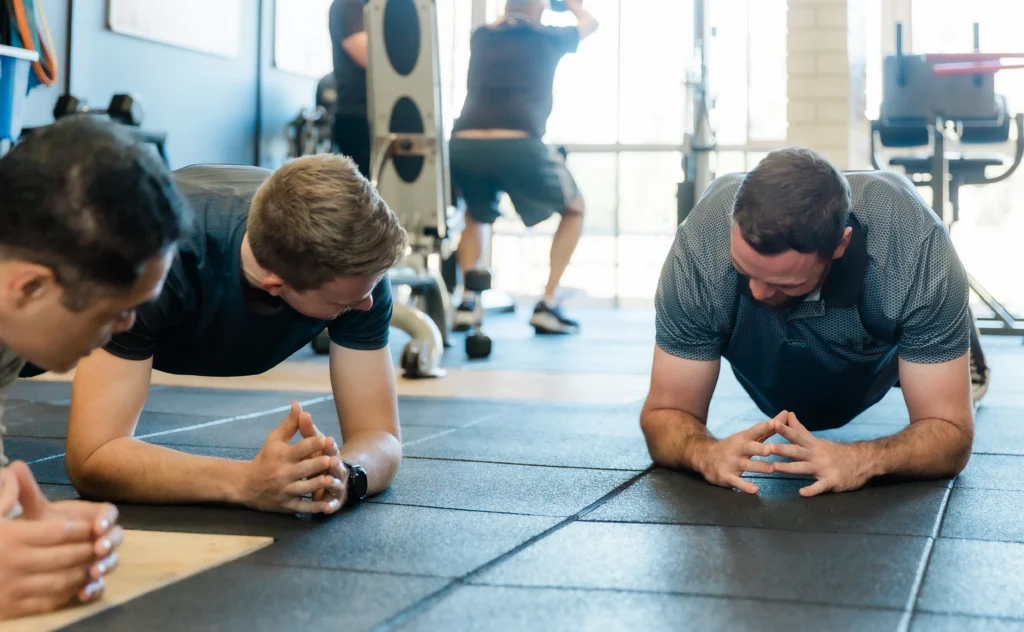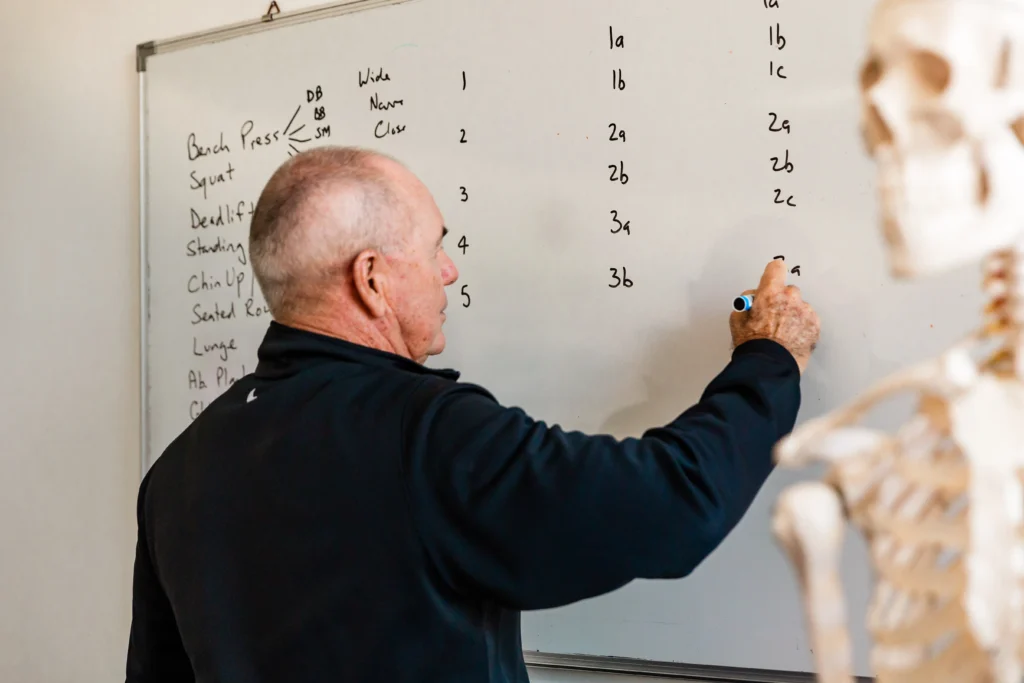Steve Nance
In the world of fitness, one thing is clear: as we age, staying active becomes more crucial than ever. With over 75% of Australia’s wealth held by baby boomers, it’s evident that this demographic plays a significant role in the fitness industry. But amidst longer lifespans and the rising life expectancy rates, many older adults face health challenges due to inactivity and sedentary lifestyles. This begs the question: how can we use exercise to help them age with strength and vitality?

The Physical Effects of Ageing
Sarcopenia
Sarcopenia, the loss of skeletal muscle mass and strength with age, is a real concern. This can begin as early as the 4th decade of life, and by the time we hit our 80s, almost half of our muscle mass may vanish. This isn’t just about looking fit; it’s about staying independent and avoiding falls. Thankfully, resistance (weight) training, coupled with a nutritious diet, can slow down this muscle loss and even facilitate muscle regeneration, giving us more strength to tackle daily tasks.
Sarcopenia affects more than just muscles—it impacts balance and mobility too. The early loss of muscle primarily affects fast-twitch/power fitness, with the lower body bearing the brunt of this decline, quickening the onset of mobility issues and compromised balance. Imagine struggling to climb stairs or carry groceries. It’s not just inconvenient; it can make older individuals feel helpless – impacting their independence and quality of life. But by incorporating resistance training into our routines, ageing individuals can regain control and move with confidence.
Addressing sarcopenia involves understanding its broader implications – like fostering functional strength and mobility to navigate the activities of daily living with ease and grace. Beyond the physical consequences, such as decreased muscle mass, there’s an emotional toll as well. Losing strength and mobility can lead to feelings of frustration and dependence, robbing individuals of their sense of agency and autonomy. From climbing stairs to lifting groceries, every aspect of one’s life is impacted by the integrity of their musculoskeletal system. By recognising the holistic impact of sarcopenia, we underscore the importance of proactive interventions that encompass both physical and emotional well-being.
Osteoporosis
Another issue is the deterioration of bone health, especially for women facing osteoporosis – which equates to approximately 1.2 million Australians. Exercise, along with a diet rich in vitamin D and calcium, is crucial for maintaining strong bones. Particularly for women undergoing oestrogen-depleting treatments for conditions like breast cancer, prioritising bone health becomes imperative.
The loss of flexibility and range of motion around joints exacerbates the challenges of daily activities for ageing individuals. Losing range of motion in our joints can make simple activities painful. But with regular targeted exercises, including weight training and flexibility sessions, older individuals can enhance their flexibility and preserve their mobility.
The importance of flexibility extends beyond physical comfort – it’s about preserving our ability to engage fully in life’s activities. From bending down to tie our shoes to reaching up to grab something from a high shelf, flexibility impacts every aspect of our daily lives. By nurturing flexibility through targeted exercises, we not only alleviate discomfort but also enhance our capacity to navigate life with ease and grace.
Diabetes
Diabetes is also a growing concern among older adults. With a new diabetes case surfacing in Australia every 6 to 7 minutes, preventative measures, such as resistance and high-intensity cardio training have great importance in mitigating this epidemic. Beyond the physical toll, diabetes has a profound emotional and financial burden on individuals and society at large. By fostering a culture of proactive health management, we can mitigate the burden of chronic diseases and promote healthier, more resilient communities.
However, beyond its physiological benefits, exercise offers a sense of empowerment and control—a reminder that we have the power to shape our health outcomes through our lifestyle choices. Through education and advocacy, we can empower individuals to take charge of their health, transforming passive recipients of care into active participants in their well-being journey.
Dementia
Dementia, now the leading cause of death among Australians aged 50 and above, underscores the urgency of proactive measures. While exercise won’t cure it, research suggests it can delay its onset and slow its progression. Moreover, the social aspect of group fitness classes can combat loneliness and isolation, boosting mental well-being and fostering a sense of belonging.

The Call to Action
The evidence is clear: exercise is the key to healthy ageing. But it’s not just about preventing specific conditions; it’s about overall well-being. As personal trainers and fitness professionals, we have a duty to promote proactive health management. Yes, the guidelines recommend a certain amount of exercise, but let’s go beyond that. Let’s encourage our clients to embrace a variety of activities, from resistance training to cardio and flexibility sessions. By empowering them to take charge of their health, we’re helping them live their best lives as they age.
In a world where ageing is often seen as a decline, exercise offers a different narrative. It’s not about fighting against time; it’s about embracing it with strength and vitality. By prioritising exercise, we’re not just improving physical health; we’re enhancing quality of life. So let’s continue to champion the power of movement, ensuring that as we grow older, we do so with grace and resilience.
RELATED ARTICLES:
THE IMPORTANCE OF EXERCISE AND AGEING:
Aus Active’s Proposal To The Federal Government: A No Brainer
Become an Older Adults trainer by studying Fit Education’s Cert III and IV in Fitness Courses
